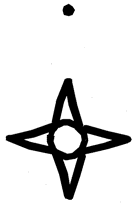Anthropology, Department of

Nebraska Anthropologist
Date of this Version
2011
Document Type
Article
Abstract
Focusing on gender relations and dominance within the Gusii of Kenya, Tombema, Kaihsienkung, and India cultures this paper will focus on bridewealth and dowry, specifically what it means in terms of "women's value" or status within these cultural groups. The dominance of the male perspective in academics is one cause for women's domestic or 'secondary' subsistence work being given lower status. Women's contributions to subsistence especially domestically (in the home) are great. This paper will focus on two points. First is the lack of research done on the subject of bridewealth and dowry; the second point is to look at recent research that is appreciating and acknowledging women's domestic contributions in more than just a reproductive capacity. Bridewealth and dowry are very fascinating topics since they are so variable between societies. Bridewealth and dowry should be considered further and in contemporary society, in how women are being valued in relation to their contribution to male's production in society.


Comments
Published in THE NEBRASKA ANTHROPOLOGIST, Volume 26 (2011). Published by the Anthropology Student Group, Department of Anthropology, University of Nebraska, Lincoln, Nebraska 68588. Copyright © 2011 University of Nebraska-Lincoln's AnthroGroup.